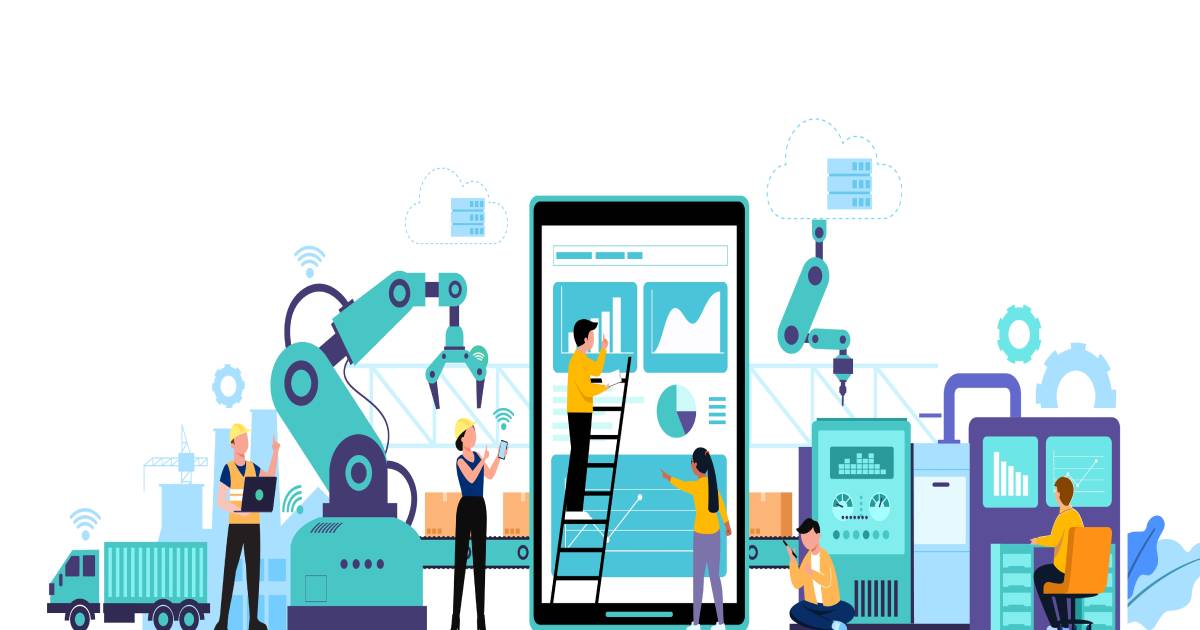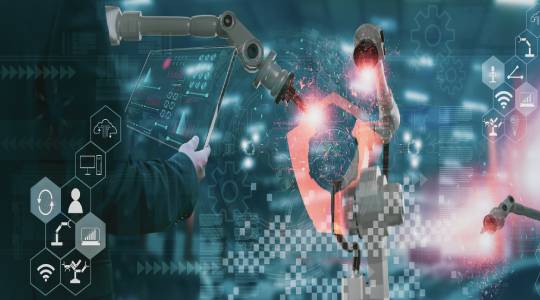What Technologies Are Used in a Smart Factory
We are entering an era where digital experiences are constantly transforming in almost every business sector. Manufacturing is no exception. The advent of Industry 4.0 is creating a new breed of manufacturing experiences powered by automation, AI, the Internet of Things (IoT), and other emerging technologies. Together they aim to transform the sector by strengthening the core pillars of efficiency, productivity, and performance and are today the basis of smart factories seen worldwide. However, several manufacturers remain unaware of what technology they need to adapt to achieve a seamless transition into smart factories.
Let us explore the top five technologies that smart factories must embrace today:
Remote Management
When factories become smarter, their administrative overhead will reduce considerably. The need for factory supervisors to physically inspect and manage every single production line or equipment is no longer needed. Instead, decision-makers in smart factories can leverage remote monitoring solutions to constantly stay connected with operational lines, but not in physical proximity. They can remotely control several factory processes, equipment, and machinery from nearly anywhere. There will be an increased focus on transparency and visibility into the performance of every modular component or phase within a smart factory. The respective stakeholders need to be alerted immediately in the event of unusual or suspicious behavior within the factory infrastructure and quickly brought into action even if they are not in close proximity. This is where remote monitoring and management technologies make a difference.
Autonomous quality control
From customer satisfaction to eliminating wastage of resources, quality control plays a critical role in manufacturing. However, manual quality control processes and techniques can be time-consuming and prone to bias. In a smart factory environment, the best way to bring an effective quality control regimen is to adapt autonomous quality control technologies. By integrating quality control as an automated digital function in all core manufacturing processes, it becomes easier to establish proactive quality management and oversight. Besides, biased decisions in quality control will be eliminated, and thus no shortcuts or jumping the queue activities will be observed in end-product quality checks.
Real-time Asset Tracking Tools
From hardware like factory equipment and machinery to work in progress or finished goods and logistical infrastructure, smart factories can bring a wide range of manufacturing assets under real-time tracking technology. By doing so, smart factories bring visibility into several areas to help make informed decisions. For example, when they can have insights into work-in-progress components like an engine module of a vehicle in a vehicle manufacturing plant, they can plan for subsequent steps like supply of integration components, ECU availability, etc. Additionally, by tracking the movement of physical assets within the factory floor, manufacturers can enable optimal scheduling of work depending on the availability of machinery and equipment.
Predictive Analytics
One of the most critical technologies that can be deployed in a smart factory is predictive analytics. By analyzing data from across the operational landscape and integrated machinery and equipment, manufacturers can uncover a wide range of possibilities lying hidden in their business. The biggest advantage or outcome of predictive analytics is the predictive maintenance of equipment and machinery in a smart factory. Manufacturers stand to benefit from huge cost savings if they can predict maintenance cycles much in advance for any factory machinery or equipment. It also enables better utilization of resources to ensure that no machinery is overworked or runs beyond its specified capacity thereby reducing wear and tear. Predictive maintenance can help physical assets extend their lifetime and assure production lines of longer and uninterrupted availability of core machinery.
Security Systems
Smart factories create an ecosystem where thousands of components within different machinery or equipment connect to the internet to help deliver unparalleled production experiences. However, with more digital integration, smart factories also become a target for fraudsters and cybercriminals. With so many digital touchpoints, it is important to ensure that no vulnerability exists in any machine-software interface. This is where modern security technology and frameworks help to bring peace of mind. From intelligent AI-based continuous threat analysis to encrypting data in transit and in storage across different digital interfaces, the scope of security investments is huge in a smart factory.
We have broadly covered the type of technologies that can help unlock the digital potential of a manufacturing facility. By transitioning into a smart factory, manufacturers can navigate tough market conditions, like for example, the COVID-19 pandemic which forced nearly every manual-intense production facility to be temporarily shut down. But to achieve this digital efficiency and actively onboard the top technologies covered above, manufacturers need to first create a data-centric and connected factory operational model. This is where Delpheon takes the center stage.
Talk to us to explore more about turning your manufacturing facility into a smart factory with our range of smart tools and hardware.



